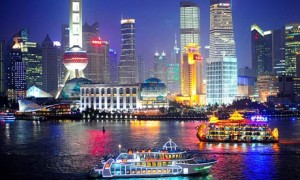 “Board’s Oversight of China and Growth Strategies in Asia” was the topic of yesterday’s meeting of the National Association of Corporate Directors. Three China experts participated on a panel discussing what business leaders should be thinking about in regards to China and the rest of Asia. The speakers were DJ Peterson, President of Longview Global Advisors; Kenneth DeWoskin, Chairman of Deloitte’s China Research and Insight Center; and Dean Yoost a retired partner at PricewaterhouseCoopers. All had great insight and experience with Dr. DeWoskin marking 50 years learning about China.
“Board’s Oversight of China and Growth Strategies in Asia” was the topic of yesterday’s meeting of the National Association of Corporate Directors. Three China experts participated on a panel discussing what business leaders should be thinking about in regards to China and the rest of Asia. The speakers were DJ Peterson, President of Longview Global Advisors; Kenneth DeWoskin, Chairman of Deloitte’s China Research and Insight Center; and Dean Yoost a retired partner at PricewaterhouseCoopers. All had great insight and experience with Dr. DeWoskin marking 50 years learning about China.
Political reform in China is very challenging as there are differences in opinions within the power elite and they insist on the mutuality of political and economic success. It was noted that there are deep irreconcilable differences between how China and the U.S. does business. China leaders will not make the same mistakes that the leaders of the Soviet Union made, such as loosening up on dissent. The Communist Party in China is looked to for reform, but banks, large state owned enterprises and the military all have vested and conflicting interests. China suffers from a lack of constraining elements. A one party system with no disclosure in its financial system with rapidly increasing debt. Although the issues are well understood, we haven’t yet seen many policy changes from the new leadership as there is no clear view on how to address these issues within Chinese leadership.
Many foreign businesses are now experiencing the economic slowdown in China. While many are reporting growth, the growth is coming primarily from expansion as comparable same store sales decrease. This is most apparent in tier 2 cities. Chinese consumers do have a strong desire for foreign brands, though the government is putting pressure on these brands, especially reputationally, as the hope is that Chinese brands will take their place. How companies are differentiating themselves is critical. Don’t think of China as a monolith, a more sophisticated analysis and a strong understanding of the nuances is required. The Chinese are more aggressively competing globally to compensate for excess capacity. The Trans-Pacific Partnership Agreement will help bring together the region and should become more harmonized as a result. Corruption is still a big issue throughout the region. Boards members need to ask “who are our business partners?”
There is a strong appetite for foreign money coming into China. There is concern about inflation spiraling out of control. The currency is, and will be, a good indicator of China’s health. The government feels it more important to hit the GDP goal that maintaining solvency in the banking system. As a result, the government props up the banks. An example, construction currently far exceeds the demand. And part of this is to create jobs and increase economic activity. Some governments pay welfare, a Chinese example would be to build a new airport… on government land, purchasing cement and steel from government owned companies, and then the finished product operated by the government. The government makes money, people are employed and they get a new airport (whether they need it or not!).
There was some mention of other countries. There is excitement about the prospects for the Philippines, even in the wake of the typhoon. It will probably be at least a year before we see much movement in India. With elections this summer, there is no momentum to get anything done now. On a positive note, it looks like the probable new Indian Prime Minister will be more business friendly.
The discussion was well balanced, trying to illustrate both the risks and opportunities of doing business in Asia. It is critical that businesses proceed with eyes wide open and that executives and boards ask good, probing, questions of staff, business partners, auditors and regulators. http://southerncalifornia.nacdonline.org/Events/EventDetail.cfm?ItemNumber=7869
